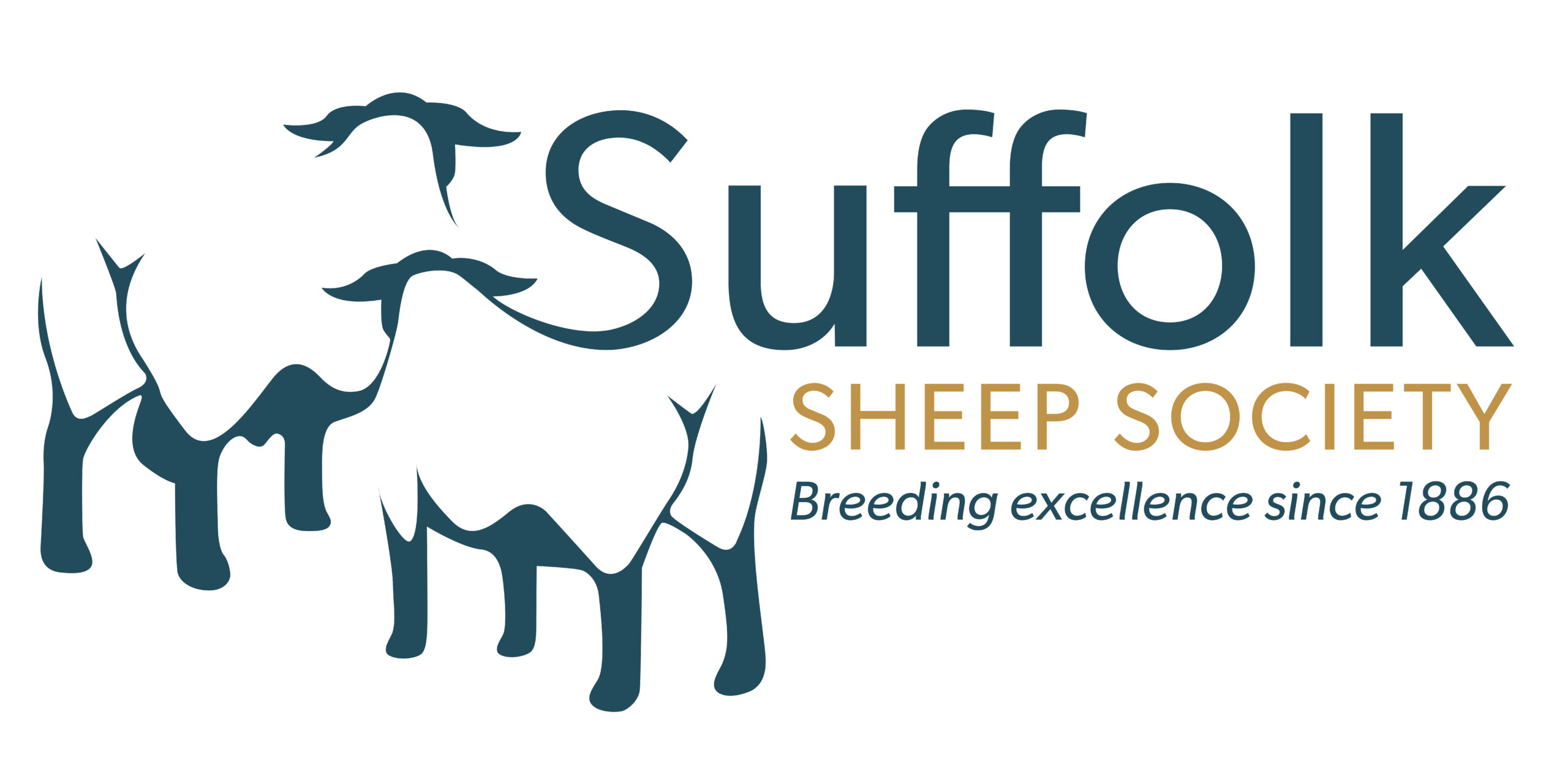Breed
The first classes to exhibit Suffolk Sheep were at the Suffolk Show in 1859. The first flock book was published in 1887. This contained 46 flocks ranging in size from 50 to 1,100 ewes and averaging 314 ewes. All 46 flocks were in East Anglia and 34 were in Suffolk itself. The oldest was that of E.P. & H. Frost of West Wratting, established in 1810.
Suffolks developed around the rotational system of farming in East Anglia, grazing on grass or clover in the summer. After weaning the ewes could be put on salt marshes or stubbles. Swedes, turnips or mangels were grazed in the winter in a very labour intensive system with a fresh area fenced off each day. Lambing was in February or March, outdoors in the fields with a hurdle shelter or in open yards surrounded by hurdles and straw.
The breed expanded rapidly, with the first flock in Ireland established in 1891, in 1895 in Scotland and 1901 in Wales. From the earliest days sheep were exported around the world, to Austria, France, Germany, Switzerland, Russia, North and South America and the colonies.
Still the leading domestic terminal sire breed throughout the UK and Ireland, the Suffolk is one of our oldest, domestic British breeds and has been in existence since the late 1700’s with the Suffolk Sheep Society formed in 1886. The Suffolk remains No 1 for growth rate as proven by numerous independent scientific studies. This ability to grow means that Suffolk lambs are ready for market earlier resulting in reduced input costs, or also be taken to heavier carcase weights, if required.
Because the breed has high milk output, hard hooves and wide pelvic dimensions for easy lambing, introducing Suffolk genetics to a commercial ewe flock is an excellent counter to the all too prevalent problems experienced with other breeds with soft and (or) slow growing lambs, or ewes that have unacceptable levels of udder and feet problems.
Suffolk Breed Points
| Head | Hornless: Face black and long ; Muzzle moderately fine in Ewes. (A Small quanity of clean white wool on the forehead not objected to.) Ears a medium length, black and fine texture. Eyes, bright and full. | 15 |
| Neck | Moderate length and well set. (In Rams stronger, with a good crest) | 5 |
| Shoulder | Broad and oblique | 5 |
| Chest | Deep and wide | 5 |
| Back and Loin | Long, level and well covered with meat and muscle; Tail well set up, the Ribs long, and well sprung, with a full flank. | 25 |
| Legs and Feet | Straight and black, with flat bones of good quality, wooled to the knees and hocks, clean below. Forelegs set well apart. Hind legs well filled with meat | 25 |
| Belly | Well covered with wool | 5 |
| Fleece | Moderatley short; close fine fibre without tendency to mat or felt together and well defined, ie. not shading off into dark wool or hair | 10 |
| Skin | Fine, soft and pink colour | 10 |
| Total | 100 |
Contact
Send a message
All fields are mandatory unless marked as optional
Suffolk Sheep Society Ltd
Fenaghy Road
Galgorm, Ballymena
Co. Antrim
BT42 1FL
Phone: +44 (0) 28 2563 2342
Chief Exec: barrieturner@suffolksheep.org
Accounts: accounts@suffolksheep.org
Enquiries: enquiries@suffolksheep.org
A company Limited by Guarantee, no. 22684
© Suffolk Sheep Society Ltd :: Charity No: 211348 :: OSCR No. SC043459
Public Privacy Policy
An MCC Site
